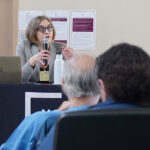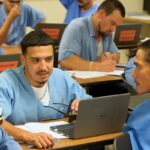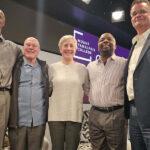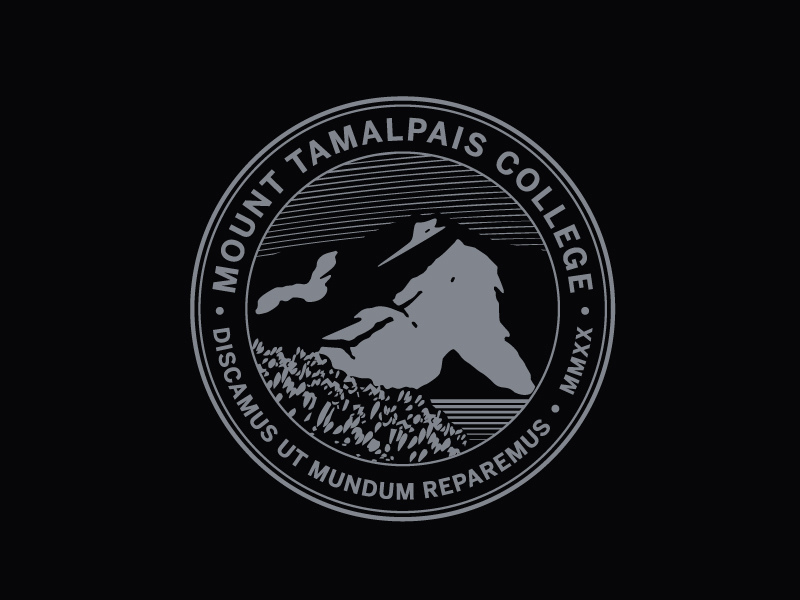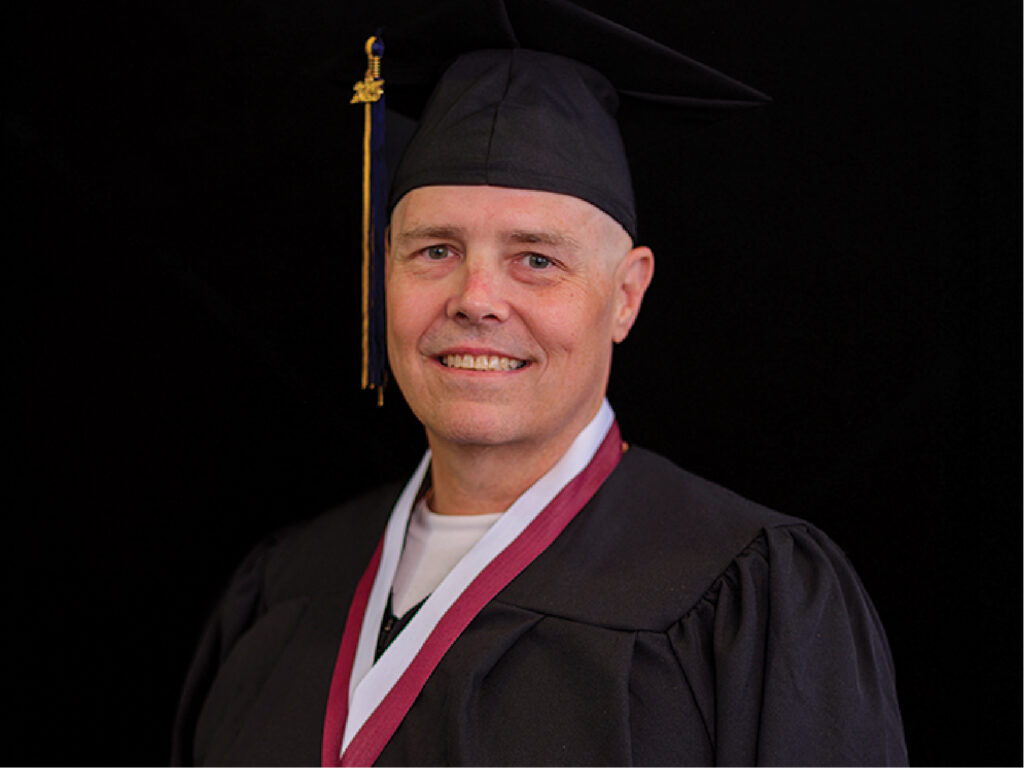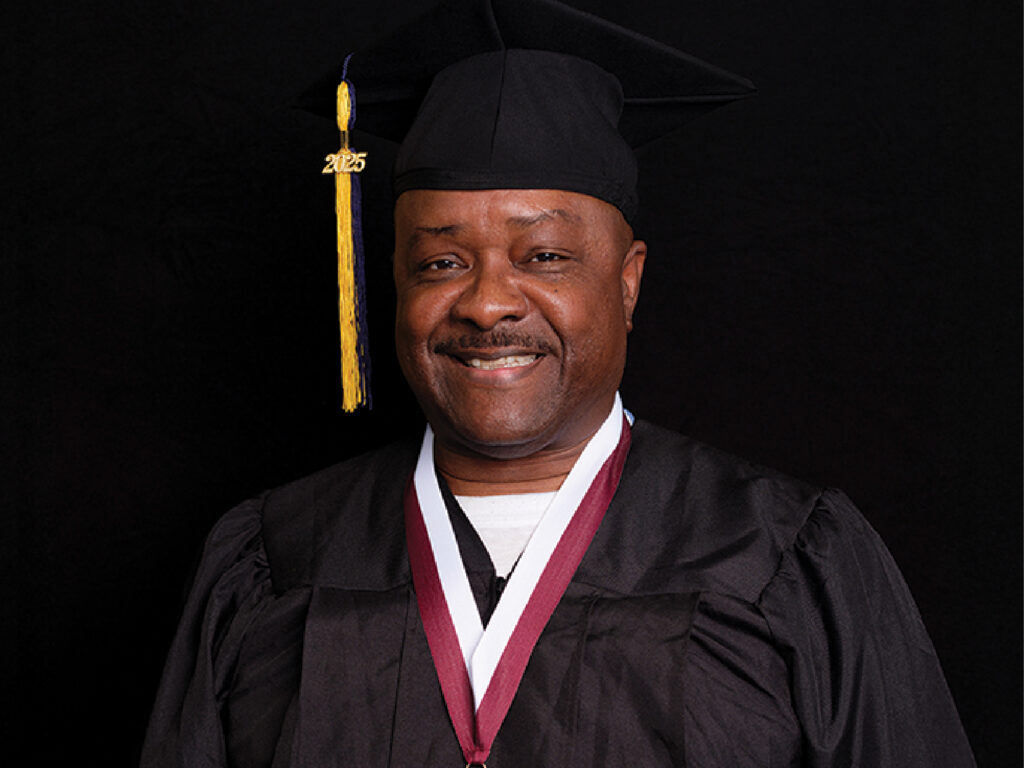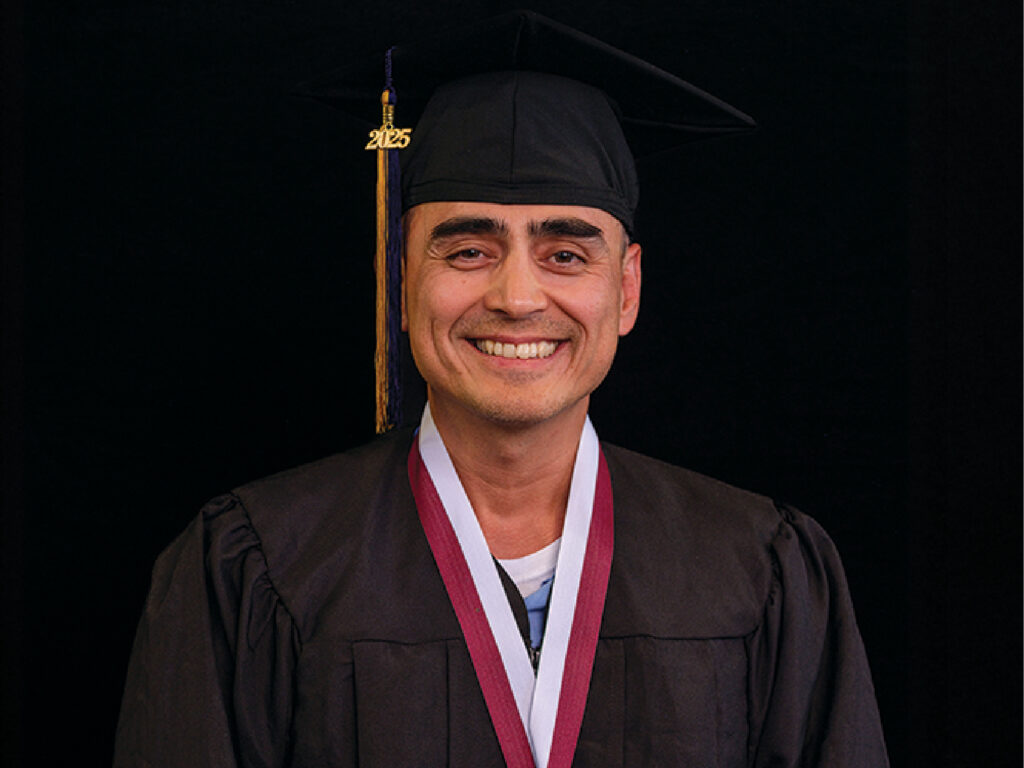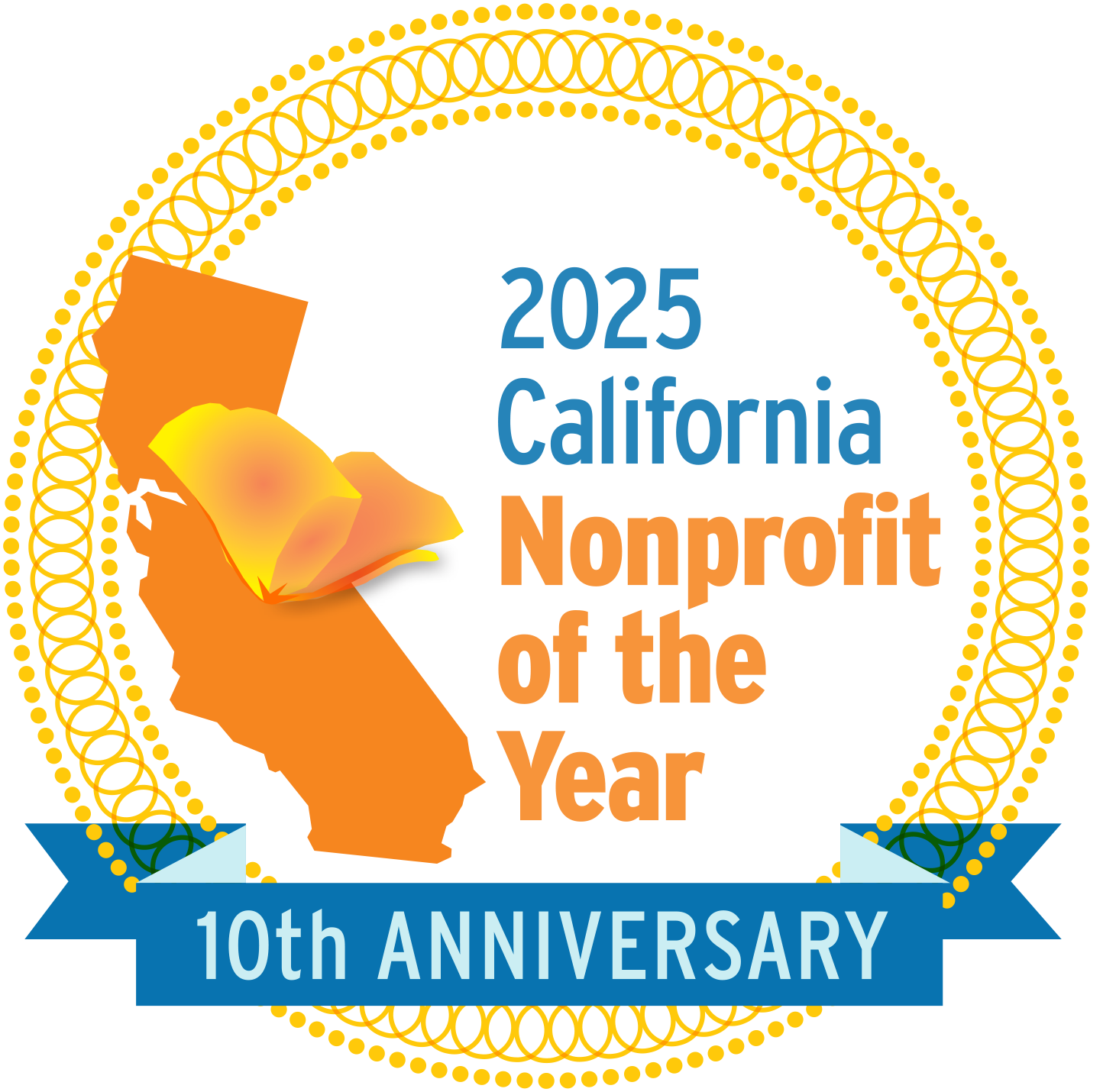Program Clerk, James King’s remarks at the Prison University Project’s 2018 Graduation:
My name is James King. On behalf of the Prison University Project, I welcome you to the 2018 Prison University Project graduation at San Quentin.
There is nothing like a Prison University Project graduation. I know there are people in this room who have attended graduations at many of the most prestigious universities in this nation, from Stanford to Harvard, but still, there is nothing like a graduation here. When I say that, I’m not referring to the ambiance, although the visiting room does look really nice today.
What makes a graduation here unique are the graduates themselves. There was a time in each of these men’s lives when graduating from college seemed like a ridiculous goal.
Take Craig Johnson for example. Mr. Johnson started taking classes with the College Program 22 years ago when the program first began. Then, in 2001, he was transferred out because the prison hired one of his relatives, and they were concerned he might receive special treatment. It took ten years and two additional prison transfers before he made it back to complete his degree.
Others, like Mr. Harry Hemphill, came to this prison because of the College Program. To get here, he had to prove himself to be a model prisoner, which is no easy task when you are at prisons where the potential for race riots and other unpredictable violence is constant, and C.O.s issue disciplinary write-ups for the smallest of reasons. He then had to get permission from the prison he was previously at and hope for bed space here.
I want to be clear on this point. For every person you see among you, who worked their way down from a level four maximum security prison, to this medium level facility, there are many others who succumbed to the trauma of prison and never made it off of the level four yards.
By any definition you can think of, the men we are honoring today are exceptional. They’ve been through war zones. Whole semesters have been interrupted by lockdowns or quarantines. To this day, they endure constant trauma, they work for pennies, take multiple self help groups to meet the parole board’s standard for release. Just finding a quiet place to study requires tremendous ingenuity.
But this is not simply rising above their circumstances. This is swimming against the riptide, taking control of their education, and changing the narratives of their lives. This is taking a ridiculous idea and turning it into certain reality.
That’s why a Prison University Project graduation is not about how great this school is, how extraordinarily dedicated our teachers are, or how capable, compassionate, and caring our administrators are, though all of these things are true. No, a Prison University Project graduation is about how amazing these men are, and what accomplishments are possible when we believe in each other and support one another. Our graduates prove that, not only is every person redeemable, but redemption would have never been necessary if they hadn’t been marginalized in the first place. We applaud these men for being leaders in our community.
Ladies and gentlemen, please join me in celebrating the 2018 graduating class.
Salutatorian, Jose Rivera, remarks at the Prison University Project’s 2018 Graduation:
Friends, family, fellow graduates, esteemed staff and guests, I bid you a most sincere welcome. Thank you for taking the time to join us in celebration of a milestone many here would not have even dreamed possible prior to its fruition. With a full heart, to all, I welcome you to share in the recognition of something built with sweat, tears, surprises, sleepless nights, frustration, determination, and stubborn refusal to let this opportunity pass us by. Welcome.
My name is Jose Rivera. Before coming to San Quentin, I hadn’t been in a classroom for almost 20 years. I had attended a few classes in city college before coming to prison, but did not take my education seriously. I guess my lack of interest led to my living the kind of life that resulted in my being here. But I don’t see that as a completely bad thing. I’ve learned in prison. Here, my appetite for education was awakened and my desire for learning became voracious. I’ve had my eyes opened in subjects I had never been interested in: physics, philosophy, sociology, neuroscience, and probably one of my most challenging classes, public speaking.
Learning those subjects were possible only because I found out about the prison University Project. I was an education clerk at another prison. One of my duties was organizing the educational folders for inmates. One day, I was making a folder for someone who had come from San Quentin and noticed all of these chronos for classes. I became excited and asked someone about it. That’s when I found out about the Prison University Project. I made it my mission to get here at that time and, when San Quentin opened for intake, I was in a position to come here. I signed up for Patten as soon as I arrived and, because of the waiting list, a little over a year later, I started my first class.
My experience at Patten has, for the most part, been an enjoyable one. I’ve been exposed to ideas and concepts I never imagined. I’ve learned about what different parts of the brain are responsible for and had my brain mangled as I tried to wrap it around the question of existence. Through it all, Prison University Project staff was near to hold my hand and walk me through it.
My fellow graduates, I have three words for you: WE DID IT! We have lived through untold distractions and still made time to do what we needed to in order to get to the finish line. This is an accomplishment we can be proud of and the knowledge we’ve acquired can never be taken away from us, it can only be added to. Let this be but the first step in a lifetime of learning. Now that our minds have been opened, it is time to fill them, and be selfish in doing so. Face it, we’re not the same people we were when we started down this path. I never thought I could stand in front of an audience and give a speech. Yet, thanks to my instructors in Comm 146, I am here standing before you, the product of the Prison University Project.
While every student’s educational journey is unique, Prison University Project students have challenges that most other college students never face. Between lockdowns, scheduling conflicts, and other nonsense brought daily by just living in prison, it turns into not “do we want to go to school,” but “can we.” If we can achieve what we have here, we can do anything, anywhere. Let me end by saying that I am proud to be one of you, and thank you for the honor.
Please note that the Prison University Project became Mount Tamalpais College in September 2020.

